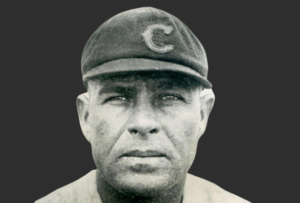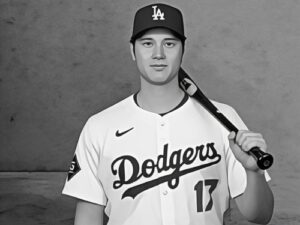On Easter Sunday, Carlos Gomez drew the wrath of Pirates’ pitcher Gerrit Cole after performing a bat-flip of dramatic proportions. Cole felt he was being shown up, Gomez sees it as a form of expression.
Who’s correct? Is there a “right way” to play baseball? What do the unwritten codes of the game have to say about it, and are players of color and Latin origin being held to a standard that quashes their ethic and cultural roots?
Gomez is a lightning rod for controversy. Last season he admired a home run he hit against the Braves a tad too long, which offended Atlanta catcher Brian McCann. When Gomez rounded third base and trotted toward home, McCann came up the line to meet him. A brouhaha ensued. McCann is from Athens, Georgia, and he’s white. Cole is white and from Newport Beach, California. Gomez is a Latino born in Santiago in the Dominican Republic. Does this make a difference? Gomez learned to play baseball in a completely different environment than McCann or Cole. He played in leagues where the customs are different.
Dodgers’ outfielder Yasiel Puig, a Cuban outfielder with immense talent, has been criticized by opponents, fans, teammates, and even his own manager for his flamboyant and at times laissez faire approach to the game of baseball. Puig has loafed, been late to games, missed cutoff men, made boneheaded baserunning plays on an alarmingly regular basis, and misplayed flyballs. His manager, Don Mattingly, who earned such a great reputation during his playing career that he was known as “Donnie Baseball,” has questioned Puig’s commitment and he’s grown tired of Puig’s habit for blaming injury for poor performance, sometimes from at-bat to at-bat.
When Puig was 17 years old he helped the Cuban national team win the Junion World Baseball Championship. Living in a communist island nation dominated by a dictatorial family, Puig’s professional aspirations were limited. He tried to defect to the United States no less than five times before he was 22 years old. When he was caught he was punished and his family was strong-armed. Finally he was able to defect via Mexico a few years ago. But recent revelations have shown that Puig and a fellow defector have faced death threats from thugs who helped him come to the U.S. It’s tough enough to come to a new country and a new culture with an unfamiliar language and fit in, Puig is trying to do it while someone apparently wants to break his kneecaps (or worse).
How fair is it for Latin and black players to be criticized for playing the game the wrong way? Is the right way really “the white way?” Who keeps track of the “unwritten rules?”
Just a few years ago, for the first time, more professional players were under contract (counting all baseball players at the major and minor league levels) who had been born outside the United States than were born inside the country. Most of those players are Latinos, prominently from Venezuela, the Dominican, Puerto Rico, Mexico, and Cuba, among other nations. Increasingly, these players are coming from a background unlike that of the white players they’re facing in the professional leagues in the U.S. they haven’t been “schooled” in the unwritten rules of the game. Bat flips, slow, deliberate home run trots, gesticulations on the mound and on the basepaths — these are all things the Latin players are introducing to the big league game here in this country. Sometimes it seems the hubbub over these incidents are more about race than right. For every Manny Ramirez who likes to dog it on the field, or Robinson Cano who plays the game at times with a casual demeanor, there are guys like Zack Greinke and A.J. Pierzynski who also play the game with a brash attitude that rubs opponents the wrong way. Ramirez and Cano are from the Dominican Republic, Greinke and Pierzynski are white and from Florida and New York, respectively.
Why is it such a big deal when Gomez breaks a bat over his knee after striking out?
Why do some (even those in his own clubhouse) wince at his aggression and machismo?
Why is it that when Bryce Harper (who is white) shows passion he’s a “throwback”, but when he dogs it down the line (as he did this weekend), his manager is criticized for benching him?
If we were to all hop on a plane and head down to Caracas to watch a baseball game, it would look and feel a lot different than the one we usually see in the United States. It starts in the stands, where the fans are reacting more like a football crowd (that’s futball, like our soccer), waving flags, playing loud music, chanting, and generally acting like fanatics (which is where we get the word fans). The play on the field is different too. Players are more flamboyant. A pitcher may celebrate with an arm pump and a wave after striking out a batter, and of a batter hits a long home run, his tour around the bases might seem more like a vacation than a 360-foot run. Machismo is alive and well in Latino culture. Young players, many of them from poor families, see the game as one of the only ways they can get themselves out of their financial sinkhole. Often, Latin players have little to be proud of, but they have a lot of pride.
We’ve seen this before. In 1947, the Brooklyn Dodgers brought Jackie Robinson into the National League, this introducing Negro leagues-style baseball to the big leagues. Robinson ran the bases with daring and made flashy plays. He was a great player, but to the black players in the Negro leagues, Robinson was just one of many in their ranks who was good enough to play with the best white players. They just needed a chance. Robinson broke the barrier, he shouldered the load. There were those in the league who resisted his presence and resented his style of play. Few players stole bases in that era, baseball was devolving into a state of station-to-station offense, and Robinson and those who followed him changed that. Eventually that style of baseball (Egads, Willie Mays used the basket catch and Maury Wills swiped bases when his team was way behind or ahead!) was incorporated into Major League Baseball.
Would Puig be treated differently if he were a white kid from Arizona? What if Manny had been an absent-minded, fun-loving “hillbilly” from West Virginia? What if Gomez was a black man from California, would his home run histrionics be any more damaging to the code of the game than those of Reggie Jackson 40 years ago?
In recent years, teams like the Boston Red Sox and Detroit Tigers have reportedly split into factions in their clubhouse between the Spanish-speaking Latin players and the white players. Spanish-language music blares in the clubhouse and teammates split into cliques. As long as the team wins, it’s generally ignored, but when the team struggles (as the Sox did in 2011 and 2012), managers are fired and “bad influences” are sent packing. Is there a racial aspect to this? What responsibility do teams have for making sure that Latin players enjoy a safe and healthy transition into American culture?
Gomez, Puig, and players from south of the border are here to stay. They’re the future of the game in many ways that American kids are not (blacks in America are playing less baseball than ever before), and their style of play, like it or not, is spreading throughout the game. Hitting a home run, putting your head down and running around the bases may have been the “right way” to play the game 20 years ago, but today, with more Latin players bringing a different style to the game, it’s not a given.






